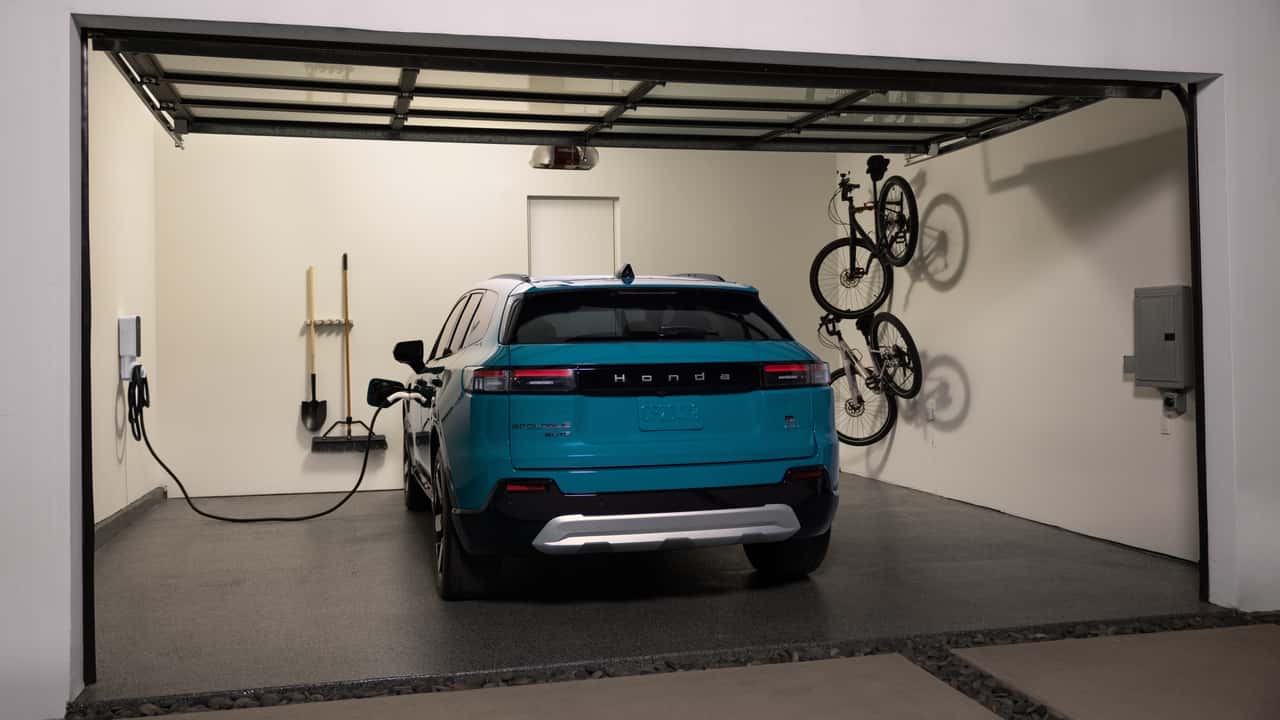Honda has partnered with Mitsubishi Corporation to enhance the value of electric vehicles (EVs) and repurpose old electric car batteries. The two companies have signed a memorandum of understanding to explore two new business models that will benefit Japanese EV owners.
The first business model, called Battery Lifetime Management, will incorporate a battery-monitoring system into Honda’s upcoming mini-EVs, which are set to be released in Japan next year. The software will aim to maximize the value of the batteries by repurposing them as stationary energy storage once they are no longer suitable for providing adequate driving range. Eventually, the batteries will be properly recycled.
The second business model will focus on the smart charging and vehicle-to-grid functionalities of Honda’s future EVs. Through an Energy Management System, the high-voltage battery of the car will be charged when energy from the grid is most affordable. Additionally, power from the battery can be supplied back to the grid at the most convenient time for the EV owner, resulting in lower electricity bills.
In the United States, Honda plans to launch its first-ever all-electric SUV, the Prologue, next year. However, the company also has other EVs in its global portfolio, including the Europe-bound e:Ny1 crossover and the N-Van e: commercial kei vehicle recently unveiled in Japan.
Honda intends to invest at least $40 billion by 2030 to increase the presence of hybrid and full-electric models, aiming for them to account for up to 40% of total sales by the end of the decade. In addition to the Prologue and Acura ZDX, Honda is developing its own EV architecture to serve as the foundation for a vehicle set to launch in North America in 2026. The company also plans to manufacture its own batteries, with some production taking place at its $3.5 billion joint venture with LG in Ohio, starting in 2025.
Old EV Batteries Repurposed as Honda and Mitsubishi Join Forces
In a move that sets a new precedent for sustainable practices in the automotive industry, Honda and Mitsubishi have recently announced a collaborative effort to repurpose old electric vehicle (EV) batteries. This innovative partnership aims to tackle the issue of battery waste and develop a circular economy approach that maximizes their value even after their primary use has ended.
As the adoption of electric vehicles continues to grow worldwide, concerns about the disposal of depleted EV batteries have steadily risen. While these batteries may no longer meet the stringent requirements for powering vehicles, they still possess a significant capacity to store energy. Recognizing this untapped potential, Honda and Mitsubishi have decided to join forces and explore ways to reuse these batteries, thereby extending their lifecycle and minimizing environmental impact.
The reutilization of old EV batteries holds immense promise in various sectors. For instance, these batteries can be employed in supplying energy to buildings, acting as temporary power backups during peak electricity demand, and aiding the integration of renewable energy sources into the grid. Furthermore, repurposing old batteries can help reduce the need for extensive mining and manufacturing of new batteries, conserving natural resources and reducing overall carbon footprints.
Honda and Mitsubishi will focus on advancing battery storage systems that can meet the diverse needs of various industries. By utilizing the expertise and resources of both companies, this collaboration aims to develop standardized protocols, ensuring the safe and efficient integration of repurposed batteries into different applications. Additionally, efforts will be made to enhance battery performance, optimize charging-discharging processes, and extend their overall lifespan.
Technical challenges and safety concerns associated with repurposing old EV batteries cannot be overlooked. However, by leveraging their experience in the automotive industry, Honda and Mitsubishi are uniquely positioned to address these challenges head-on. With their vast knowledge and research capabilities, they can develop innovative solutions to enhance the reliability and safety of repurposed batteries.
While this collaboration between Honda and Mitsubishi marks a significant step toward achieving a more sustainable future, it is important to acknowledge the broader implications for the entire automotive industry. The roadmap laid out by these two industry leaders will serve as a blueprint, encouraging other manufacturers to adopt similar practices, thus creating a collective movement toward achieving eco-friendly and responsible disposal of used EV batteries.
Moreover, this joint effort not only benefits the environment but also presents an opportunity for both companies to establish a competitive advantage in the evolving market of energy storage systems. As the demand for renewable energy rises, so does the need for efficient and cost-effective ways to manage and store that energy. Leveraging repurposed EV batteries can provide both Honda and Mitsubishi with a unique and sustainable offering to meet this demand.
In conclusion, the collaborative effort between Honda and Mitsubishi to repurpose old EV batteries signifies a landmark achievement in sustainable practices within the automotive industry. By extending the lifecycle of these batteries, minimizing waste, and maximizing value, this partnership sets an inspiring example for other companies to follow. Through innovation and responsible reutilization, we can pave the way for a greener tomorrow, reducing our dependence on finite resources and taking us one step closer to a truly circular economy.

